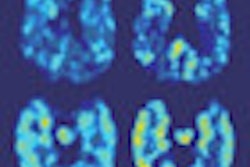Access to and utilization of PET for diagnosing, staging, and monitoring cancer treatment varies widely from province to province in Canada, putting cancer patients in some regions of the country at a distinct disadvantage.
That conclusion comes from a new report from TRIUMF, Canada's national laboratory for particle and nuclear physics, and Advanced Applied Physics Solutions (AAPS). The study was led by independent medical research consultant Susan Martinuk.
"PET is revolutionizing clinical cancer care in the United States and Europe, yet many Canadian doctors and policy officials continue to see PET as experimental and unproven technology," Martinuk wrote. "Cancer patients can suffer because of this reluctance."
The one exception to the norm is in Quebec, which hosts a network of 12 clinical PET scanners and PET imaging serves. Some provinces, such as Saskatchewan, have no PET scanners, and other provinces, such as Ontario, have adequate equipment but restrict access. In British Columbia, PET scanners are overwhelmed by patient volume, according to the report.
The study also cited Canada's unique geography and population density, equipment and operating costs, a limited availability of FDG, and the lack of national policies, protocols, and indications as other factors that can prevent cancer patients from having access to PET.




















